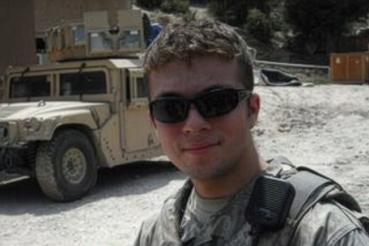Robert Shulman, MD, who served as chair of the Department of Psychiatry and Behavioral Sciences at Rush University Medical Center and director of Mental Health Services for the Rush system, died on June 5 of cancer. He was 69.
Throughout his career spanning more than 30 years, Shulman made significant contributions to the field of neuropsychiatry and psychopharmacology. His clinical expertise was unparalleled, particularly in the treatment of resistant mood disorders, the neuropsychiatric complications of medical illness, the aging process, and traumatic brain injury.
His passion for leadership development and sports psychiatry also led him to work closely with professional athletes across multiple sports.
Shulman was instrumental in advancing the mental health service line at Rush. He led efforts to reorganize the department, mentored numerous colleagues, supported faculty development, and fervently advocated for mental health care. His dedication and leadership were especially invaluable during the unprecedented challenges presented by the COVID-19 pandemic. He often shared his expertise in the media, including this story from the Chicago Tribune on the importance of grieving.
"Dr. Shulman’s passion for neuropsychiatry and his unwavering commitment to patient care were truly unparalleled. He played a crucial role in reorganizing our department and supporting faculty development, demonstrating remarkable leadership,” said Neha V. Gupta, MD, interim co-chair for the Department of Psychiatry and Behavioral Sciences. “His legacy is one of excellence, compassion, and tireless advocacy for mental health. His passing is a great loss to our community, but his influence will continue to inspire us."
Always optimistic
Shulman also served as director of the Road Home Program, part of the Wounded Warrior Project's Warrior Care Network. His commitment to the mental health and well-being of veterans and their families was deeply felt and widely recognized.
“As someone who worked closely with Dr. Shulman through the years, I knew him to be — without fail — someone who was supportive, generous, wise and compassionate,” said Brian Klassen, PhD, clinical director of the Road Home Program. “He was proud of our attempts at Road Home to treat those veterans suffering from the most difficult-to-treat traumatic experiences because he always said that focusing on your patients and doing the absolute best you can for them is, quite simply, the Rush way.”
Shulman’s legacy is one of unwavering commitment to his patients, his colleagues and the field of psychiatry. He was known to take on challenges with great wisdom, humor and an optimistic view of the future. One of his many talents included writing inspiring messages to his colleagues during challenging times. Many were tinged with references to poems, movies and novels. One of his favorite quotes was from Voltaire’s satire Candide: “All is for the best in this best of all possible worlds.”
"Having had the privilege to work with Dr. Shulman as well as to share patients with him, I witnessed firsthand his exceptional ability as a true caregiver. He strived to mentor and support colleagues as well as create opportunities,” said Cynthia Brincat, MD, PhD, acting dean of Rush Medical College. “He was a great doctor, colleague and mentor to many."
Shulman received his medical degree from Chicago Medical School at Rosalind Franklin University. He completed his psychiatry residency at Rush-Presbyterian-St. Luke’s Medical Center, the forerunner of Rush University, serving as chief resident in his final year and was chairman of psychiatry at the former Rush North Shore Medical Center before returning to Rush University Medical Center in 2012.
In lieu of flowers, the family requests that donations be made honoring Shulman’s impact in support of the Rush Department of Psychiatry and Behavioral Sciences. Please send memorial checks made out to "Rush University Medical Center" to the Rush Office of Philanthropy, 28057 Network Place, Chicago, IL 60673-1280 or visit rushgiving.com/psychiatryfnd.




